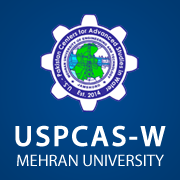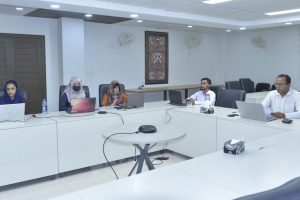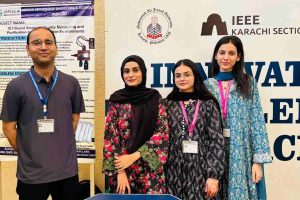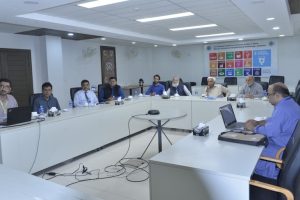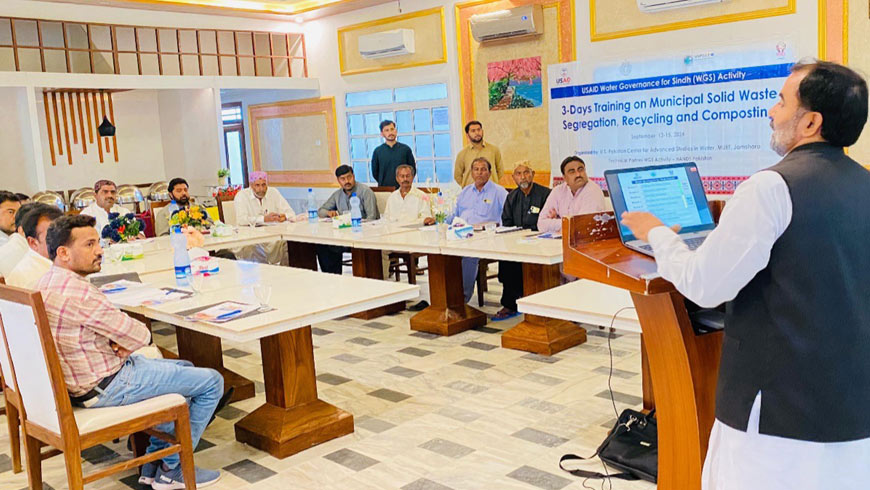
The USPCASW and HANDS-Pakistan held a three-day training program in Jacobabad on solid waste segregation, recycling, and composting
Three days Training session on Solid Waste Segregation, Recycling, and Composting was conducted by USPCASW, in collaboration with HANDS-Pakistan, at Jacobabad to train Sanitary Inspectors of the Municipal Committee Jacobabad (MCJ). This training was part of the USAID-funded Water Governance for Sindh (WGS) Activity Solid Waste Management (SWM) component led by Dr. Tanveer Ahmed Gadhi, Assistant Professor USPCAS-W and co-led by Dr. Muhammad Safar Korai and their team.
Participants were introduced to the composition and characteristics of solid waste and its socio-economic impacts. They also learned about solid waste management (SWM) policies and regulations, focusing on on-site handling, storage, collection, and transportation techniques. Training then emphasized disposal methods and treatment technologies, with a special focus on composting—its types, design parameters, and the applications of compost products. The 3R concept (Reduce, Reuse, Recycle) was also covered, highlighting its environmental benefits.
Participants later visited a composting demonstration site, where they practised analyzing compost quality. Pre- and post-assessment tests significantly improved participants’ knowledge of solid waste management techniques.
The training provided participants with theoretical knowledge and practical experience, empowering them to implement sustainable SWM solutions.

